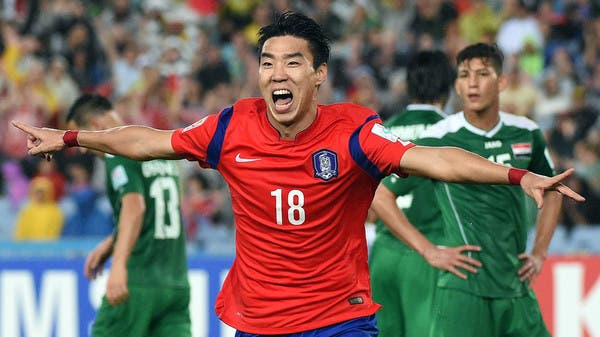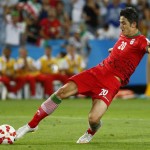(FIFA.com) Tuesday 3 February 2015
The 2015 edition of the AFC Asian Cup provided high-quality and entertaining football throughout the 32-match, three-week competition. Among the most attractive aspects were the performances of a host of youngsters who put themselves into the spotlight and proved they are likely to be grabbing headlines during the build-up to the 2018 FIFA World Cup Russia™ and beyond.
FIFA.com takes a look at five names that shone brightly at Australia 2015.
Omar Abdulrahman (United Arab Emirates)
No player cut such a distinctive figure as mop-haired United Arab Emirates ace Omar Abdulrahman. The Al Ain-based No10 delivered in every department, featuring prominently in each TV highlights reel from the tournament. The Riyadh-born midfielder of Yemeni extraction has a repertoire of flicks and tricks that would be the envy of any futsal superstar, while his left-foot slalom dribbles boast a hint of Diego Maradona during the Argentine’s mid-1980s pomp. Abdulrahman provided four assists among UAE’s ten goals in their run to the semi-finals. His passing and understanding with free-running forwards Ali Mabkhout and Ahmed Khalil helped the pair share nine goals, and ensures the UAE will be dangerous opponents heading into Russia 2018 qualifying. Though he made his national team debut back in 2010, Abdulrahman has now made a definitive statement on the international stage.

Massimo Luongo (Australia)
Arguably no one was as influential in Australia’s charge to their maiden Asian Cup crown as Massimo Luongo. So much so that the previously unheralded Sydneysider was named player of the Asian Cup for his tournament-high involvement in six goals (including four assists). That the 22-year-old Luongo wasn’t expected to be in the Socceroo starting side at the beginning of January makes his rise all the more meteoric. Luongo is an all-action, attack-minded central midfielder who likes to dribble at pace, link with fellow attackers and position himself between the lines. The Swindon Town-based Luongo was the only third-tier player to feature in the final, yet his all-round game was pivotal in Australia’s win over Korea Republic. His desperate block of Son Heungmin’s shot in defence was almost immediately followed by a classy turn and strike at the other end for the game’s opening goal.

Sardar Azmoun (Iran)
Iran‘s big-name stars were to some degree eclipsed by a lean, newly-capped striker who garnered many of the headlines. Sardar Azmoun scored arguably the goal of the tournament with a deft balletic turn and prodded finish to net the only goal of the game against Qatar, securing a win which ultimately ensured Team Melli qualified at the top of their group. All this from a player who turned 20 just days prior to the tournament, and who had scored his first international goal only two months earlier. Azmoun, the son of an international volleyballer, was picked up by Russia’s Rubin Kazan at just 17 and has since been linked with numerous major clubs in Europe. The tall and athletically built forward seems to have all the potential needed to be an Iran star for years to come.

Abdelkarim Hassan (Qatar)
Though Qatar exited in the group stage, the class of left-sided defender Abdelkarim Hassan is evidence of a bright future for Al Annabi. Hassan, a graduate of the famed Aspire Academy in Doha, not only boasts strong athletic capabilities but also a natural game sense. Watching Hassan push down the flanks and linking with team-mates, it is hard to believe he is still only 21, though now in his fifth year of senior football. Along with the likes of striker Mohammed Muntari, Hassan represents the vanguard of young players that could form the basis of Qatar’s team when they host the 2022 World Cup.

Lee Jeonghyeop (Korea Republic)
Lee Jeonghyeop proved to be another unlikely star of the 2015 Asian Cup. Uncapped prior to this year and away from the spotlight at unglamorous Sangju Sangmu, Lee suddenly found himself a pivotal part of Uli Stielike’s forward line as Korea Republic marched all the way to the final. Tall and boasting trademark South Korean spirit, Lee netted twice, celebrating with an army salute to acknowledge his military service. The winner against Australia in the group stage and the semi-final opener against Iraq proved crucial goals for an injury-hit South Korean side missing the considerable talents of Koo Jacheol and Lee Chungyong.


